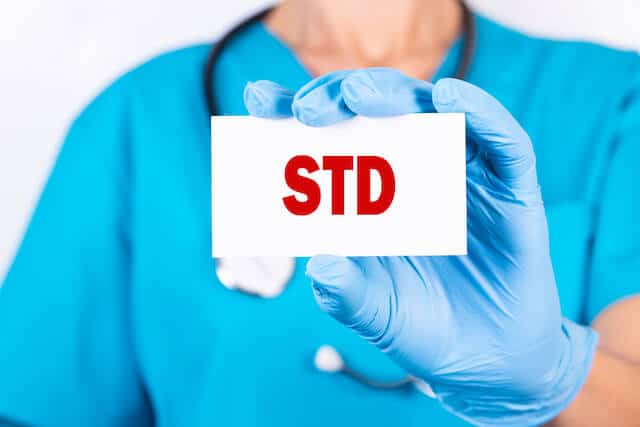You can contract a sexually transmitted disease (STD) through the exchange of semen, vaginal fluids, anal fluids, or pre-ejaculation fluid. Other STDs such as genital herpes, human simplex virus (HSV), and human papillomavirus (HPV) can be transmitted through skin-to-skin contact. Early symptoms of an STD include penis discharge, vaginal discharge, pain during sex, sores on the genital area, etc., and can range from mild to severe and may affect different parts of the body.
So, what happens when you suspect you have an STD? Take the following steps.
Start practicing safe sex.
You are obligated to protect yourself and your partner from further infection if you suspect contracting an STD. That means talking to your sexual partner about your worries and why you need to get tested. It may be necessary to abstain from sex until you find a solution.
If you haven’t been practicing safe sex, you should start doing that if you cannot abstain. Although safe sex doesn’t prevent diseases such as HPV and HSV transmitted through skin contact, it can reduce the risk of transmitting any infection you have to your partner. Remember that it is never too late to start practicing safe sex.
Consult a doctor and get tested
If you presume that you might have an STD, the best thing is to visit a doctor, explain your symptoms, and get tested. It is normal to feel embarrassed discussing your sexual health with your doctor one on one, but you don’t have to be, thanks to an online std doctor. Explain to your doctor why you think you have an STD; for instance, a former partner may have told you they have it and the symptoms you have.
The doctor can assess your symptoms and determine whether or not you have an STD. The other way to know for sure if you have an STD is to get tested. Depending on the test, you may have to wait for a certain period to get the test results.
Start treatment
When diagnosed with an STD, the doctor will prescribe treatment in the form of prescription drugs or injections to address the infection. You must complete the treatment regimen your doctor provides even if you feel fine halfway through. Not completing the antibiotics dose increases the risk of developing an antibiotic-resistant infection that will be difficult to treat in the future.
If you are in a relationship, it is advisable to abstain until you and your partner get well. If diagnosed with an incurable STD such as HPV, HSV, or HIV, ask your doctor how best to manage it and still enjoy healthy sex life.
Inform your partner about the diagnosis
When diagnosed with an STD, it is only wise to tell your sexual partner that they have been exposed and go for testing. It is also reasonable to reach out to recent sexual partners even if you are not currently sleeping with them, as they could also be at risk.
Note that some STDs are notifiable by law which means that testing providers must inform your partners that they may be infected without mentioning your name.


